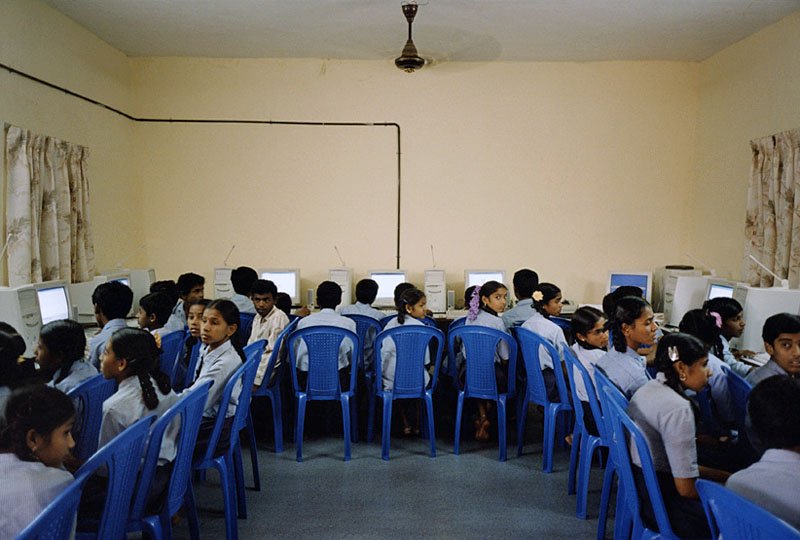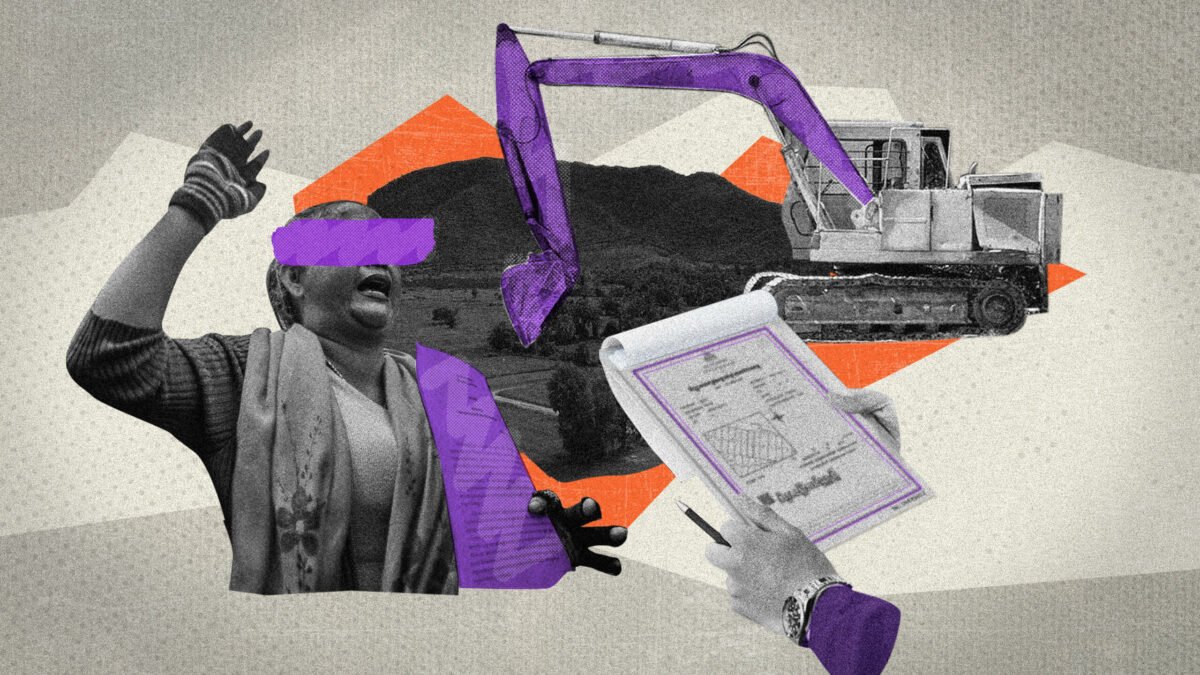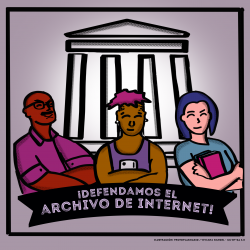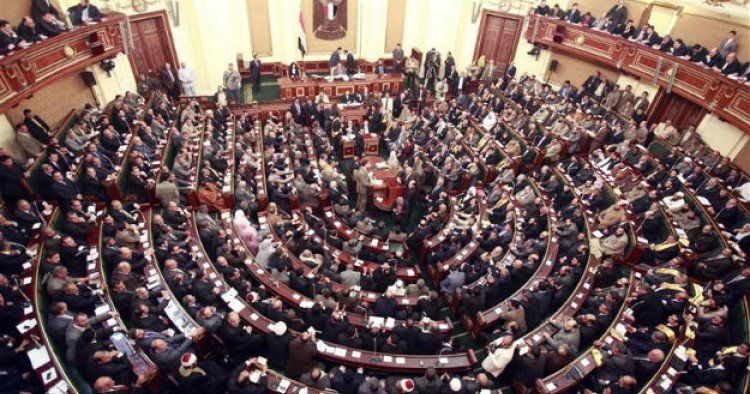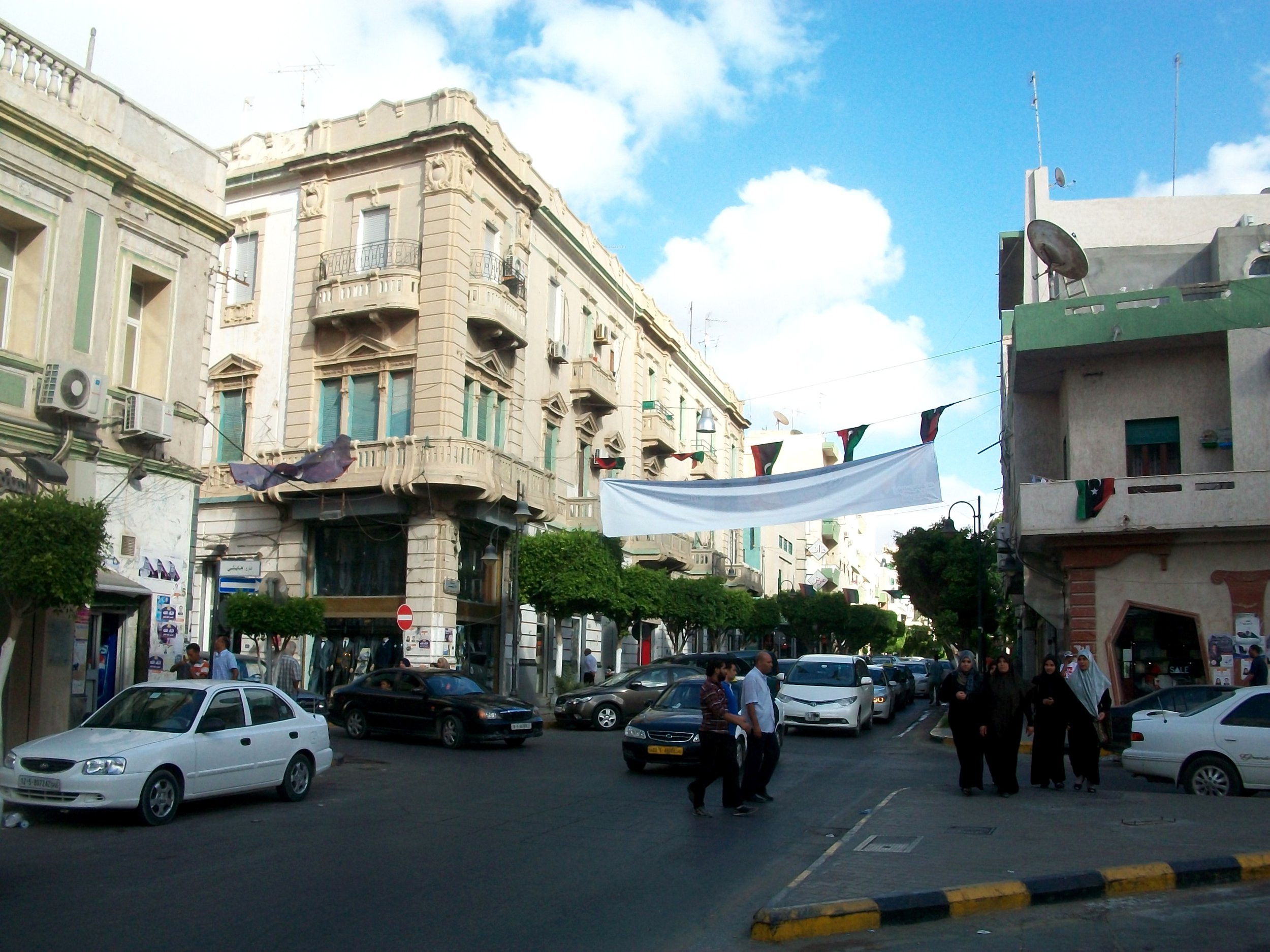July 2023 | Digital Rights Regional Briefs
Danae Tapia, Global Community Manager & Resident Hechicera
Welcome to a new release of our regional briefs for the month of July!
These are the last briefs from the 2022-2023 community leads cohort. We are deeply thankful for their work strengthening our community building. During this time, the regional community leads from Africa, Asia, Latin America, and the MENA region have organized the regional meetups, invited and prepared the participation of great guests for the Glitter Meetups, and have written these amazing digital rights monthly briefs. Thank you so much for your incredible contribution!
This month you can find information on loan apps in Mexico, a comparative evaluation of cybercrime laws in the MENA region, updates about digital security training in Sub-Saharan Africa, plus plenty of job opportunities in the Asian digital rights space.
We have a permanent commitment to address issues that are not usually covered in the digital rights field in order to promote a wider and more heterogeneous space. If you share this goal with us you are welcome to contact us and join our spaces so we can work together to advance the efforts of the many technologists working for a fairer cyberspace.
See you soon,
Danae
Global Community Manager
Asia Regional Brief
Africa Regional Brief
Latin America Regional Brief
MENA Regional Brief
Author: Mardiya Siba Yahaya
Mardiya Siba Yahaya is our Africa Community Lead. She is a feminist digital sociologist, researcher and community movement builder whose work extensively investigates the implications of technology surveillance and datafied societies on minoritized genders and communities in the global South. She has a Masters in Sociology from the University of the Witwatersrand, and was awarded the Mandela Rhodes Scholarship in 2021. Mardiya recently participated in the fall 2022 research sprint hosted by the Berkman Klein Center for Internet and Society on “Digital IDs in Times of Crisis”.
Africa Regional Brief
Current Opportunities for Digital Rights Defenders
#KeepItOn Advocacy Fellowship: AccessNow is hiring a fellow to participate and amplify the #KeepItOn campaign against internet shutdowns globally. Apply by August 4 2023.
Riseup Networks is seeking a part-time Systems Administrator who will focus on debugging, triaging and fixing issues related to their communication service infrastructure.
African Women Development Fund: Call for Applications: Leading from the South. Apply by August 8, 2023.
Emerging Topics on Digital Justice in Africa
AI & Border Surveillance: EU-Africa Migration Policies and Threats of the Mis/Disinformation Ecosystem Pose
On June 14 2023, a fishing boat departed from Libya carrying between 400 to 750 migrants capsized and sank off the Greek coast. The tragic case of the migrant boat resparked critical conversations on European Union (EU) border and migration policies that cost the lives of hundreds of migrants trying to cross the Mediterranean. Part of the conversation on stringent and problematic border management includes the case of Artificial Intelligence (AI) surveillance technologies used at entry and exit points in many EU states.
This was covered in a recent research report titled “Artificial Intelligence: The New Frontier of EU Border Externalization”. The report tracks how the EU, through its Trust Fund for Africa, has funded AI surveillance technologies in Africa, including biometric identity systems, population registers, international mobile subscriber identity (IMSI) catcher, and a wiretapping center, just to name a few. The database from these systems and registers, have been found to be used in identifying individual citizens from fund recipient countries, such as Tunisia, Niger, Ivory Coast, and Senegal to deport from EU member states.
Ironically, the EU has been at the forefront of the AI act, and has taken significant regulatory steps towards reducing mass surveillance, proposing data compliance methods, and banning AI that pose high risk to communities and individuals. In May 2023, the EU parliament voted to ban AI surveillance. In June, the act was voted on by the parliament. They began final negotiations with other institutions in July, yet the act falls short on addressing automated risks and predictive policing technologies at their borders, which disproportionately affect marginalized groups.
Loopholes in the AI Act, Biases in the Predictive Systems, and Desinformation
Source: Ada Lovelace Institute
However, the main concern is that the policy loopholes in the AI Act enable the EU to continue funding research projects that experiment with advanced surveillance and predictive technologies on the bodies and lives of Africans.
Digital rights defenders have called for projects such as ITFLOWS and iBorderControl to be banned. ITFLOWS, specifically, aims to provide EU member states with predictions of the number of migrants coming to specific European countries. The supposed forecast will be based on data sources including video content, text, TV, and social media.
While predictive analytical systems have proved to reinforce and reconfigure biases and harm against Africans and marginalized populations, disinformation may also be a significant cause of inaccuracies that may occur as a result of technologies such as ITFLOWS. Issues arise when the majority of African languages used to communicate online are unknown to AI training vocabularies. The languages are also not represented on digital databases that may form a part of the scraped data used for the predictive and forecasting technology that informs migration decisions and planning – rendering their insights incomplete.
In an era of what many term as ‘post truth’, building an AI border management technology that relies on social media databases, video, text content and news to make decisions that would alter the lives of at-risk populations only amplifies the threats marginalized communities already experience with border surveillance.
The loopholes within the EU AI ACT allows the EU member states to externalize and outsource surveillance counteracts the communicated goal and key aspects of the act to ban biometric surveillance, stop racist and discriminatory AI, increase transparency and strengthen the protection of people on the move. Investing in AI surveillance technologies for border management and migration planning does the exact opposite, and digital rights and security communities, organizations and advocates are looking to eliminate some of these loopholes and address the abuses the gaps may operationalize in the ongoing civil society negotiations that happened this month.
Community News in Africa
ConnectCon: Digital Society Africa Launches its Training of Trainers Network
At the beginning of 2023, Digital Society Africa (DSA) shared their plans to grow their digital security trainers network with 33 consultants to support six Southern African countries, and expand their contextualized and localized support to digital rights communities in the region. At the end of June, the DSA network hosted a 3-day closed event to launch the expansion project through a series of learning activities including the use of safetag methodology for security auditing, election monitoring, and network interruptions or shutdowns measurements. Event participants engaged in sessions on how to contextualize digital security hosted by localization labs, and had training on registering for and using greenhost secure hosting for rapid response.
The goal of DSA is to sustainably improve digital security capabilities across Africa by exploring and fostering the synergies and collaborative efforts within the digital rights and security community. Hence, ConnectCon was created to promote knowledge sharing, experiences, and best practices to ultimately improve its collective impact within the community. For DSA, the event and the network of trainers signified a first step towards collective impact, with various community members coming together to support the event, envision the strategic next steps of DSA and commit to translating OONI to seven African languages.
Regional News and Updates in Africa
Using Grassroots Data Collection Methods to Bridge ‘Low Resource’ Language Gaps used in Multilingual AI Moderation Systems:
Source: Wikimedia Commons
Lesan is a start-up using grassroots data collection methods to address language gaps in AI translation systems. The data collection method acknowledges that languages such as Amahric and Tigrinya are not represented in digitized texts that are used to train the majority of multilingual AI systems or translation technologies. Despite the existing gaps, private technology companies continue to use their AI systems that use ‘cross-lingual transfer’ for automated moderation, which has constantly failed to flag hateful speech within Ethiopia, especially during the war in Tigray. To address this, Lesan works with local communities to build custom character recognition tools, and transforms offline resources such as books and magazines into machine readable format, which are important to train AI translation technology on words that are considered ‘unknown to the models vocabulary’.
The Threats of Being a Woman Who Works in e-Ride Hailing and Platform Delivery Services:
Gig work for many women drivers represents a pathway to financial freedom and survival. However, platform work as a source of income is challenged by gendered threats they experience from their job. Women ride-hailing workers have reported experiencing casual sexism, sexual violence, and physical violence while engaging in their job. One of the workers shared their experiences of being stabbed and robbed by a male client and help from the platform came too late. Another worker highlighted that the issues they face are layered. Platform companies tell women platform workers that they may decline or cancel ride requests when they feel unsafe. However, the workers shared that the platform penalizes them when they cancel multiple requests, and they lose money from having to rely on a few clients. Thus far, the work conditions for women ride-hailing are precarious, although the workers believe that it is not beneficial to them to quit the industry.
Author: Astha Rajvanshi
Astha Rajvanshi is an independent journalist based in Mumbai, where she writes on gender, marginalized communities, and human rights across India and South Asia. Recently, she was awarded the Matthew Power Literary Reporting Award by New York University. As part of her reporting in India, she is currently examining tech surveillance and internet shutdowns. Previously, she was a Fellow for the Institute of Current World Affairs in Washington DC. She has also worked for the New York Times Magazine and Reuters in New York. She was born in New Delhi and raised in Sydney as a proud daughter of immigrants.
Asia Regional Brief
Current Opportunities for Digital Rights Defenders in Asia
#KeepItOn Advocacy Fellowship. Access Now
The #KeepItOn Advocacy Fellow will participate in and amplify the #KeepItOn campaign to fight internet shutdowns globally. They will work directly under the supervision of their #KeepItOn Campaign Manager. They will support the team’s day-to-day planning, execution of campaigns and rapid response against internet shutdowns, support in writing joint statements/blog posts/open letters/publications, engage with the #KeepitOn coalition members in response to shutdowns, and assist in cleaning up and updating the coalition’s members’ database. Deadline: August 4, 2023. Apply here.
Senior Policy Analyst / Counsel (East Asia). Access Now
The Senior Policy Analyst is deeply involved in aspects of the organization that pertain to Access Now’s policy initiatives in East Asia. The Analyst works closely with Asia Pacific policy analysts, campaigners, regional leaders, and others around the world to foster international dialogue to ensure that legislation and policies around the region respect and extend human rights in the digital age. Apply here.
Community and Operations Associate. Internet Freedom Foundation
The Internet Freedom Foundation (IFF) is a young, impact-focused Indian non-profit organization, born out of the SaveTheInternet.in movement for net neutrality. Their work aims to protect and advance constitutional freedoms for every Indian in a digital society. They are looking for a Community and Operations Associate to join their Operations Team! Apply here.
ICT Associate (Bangkok, Thailand). UNICEF
Under the direct supervision of the ICT Officer on daily work and technical oversight of the Innovation Officer on programme projects, the Technology for Development (T4D) Associate assists Country Office and Regional Office with the identification, assessment and implementation of ICT components into UNICEF programmes which includes but not limited to managing T4D related projects, engaging with key partners, identifying potential technology available in the market locally, building internal capacity, scaling up and rolling out technology-enabled programme initiatives. Deadline to apply: August 6, 2023. Apply here.
Programme Associate (Suva, Fiji). UNDP
Under the guidance and supervision of Project Manager and the FREF Project Officer. The Programme Associate will have to assess existing and changed socio-economic situations under different scenarios of rural electrification and identify various actions to be taken to unlock the economic potential of rural communities using access to electricity as an enabler. Deadline to apply: August 7, 2023. Apply here.
Associate Public Information Officer, Department of Global Communications. Hind (New York)
The News Section, part of the News & Content Branch of the News & Media Division of the Department of Global Communications (DGC), produces daily news and feature stories, magazine programmes, special series and creates audio content using live and recorded audio from meetings and events, and multimedia pieces for the UN News digital platform, incorporating audio and video elements, as well as social media content. Deadline to apply: September 7, 2023. Apply here.
Event Coordinator (Bangkok City, Thailand), Asia Centre
The Events Coordinator (EC), who needs to be able to speak and write in English, supports the organisation of all events, training sessions, and speaking engagements at the Asia Centre Meeting Hub and other external venues. This includes the promotion and marketing of events, inviting and managing speakers and participants, including logistical tasks related to events management, such as identifying external venues and caterers, domestic and international travel coordination, as well as the management of technical equipment in the meeting room. Apply here.
Emerging Topics on Digital Justice in Asia
Why Southeast Asia Needs to Catch Up with AI Regulation
Source: Wikimedia Commons
In Southeast Asia, the introduction of a regulatory framework around Artificial Intelligence (AI) governance has become increasingly important as publicly available AI tools like ChatGPT and Midjourney continue to spread around the world. Generative AI has fuelled concerns about how AI impacts labor, economic growth and development, in addition to how it causes misuse and violations of fundamental human and digital rights.
In the Asia-Pacific region, which has seen the highest number of users and adaptors globally, a lack of representation and participation in AI design, governance and standard-setting from Asian countries has rung alarm bells, especially at a time when the west —including the EU, UK and the USA— attempt to become the leading watchdogs.
The gap in AI regulation with an Asian regulatory framework is particularly concerning as Asia has both leaders and laggards in AI. According to Oxford Insights’ 2022 Government AI Readiness Index, while Singapore, South Korea and Japan rank highly on the matter, countries like China, Taiwan, Malaysia, Thailand, and Indonesia score much lower. Vietnam is still in the early stages of developing AI regulations.
Historically, Asia is also underrepresented in the large datasets used in AI and machine learning. This in turn has limited its representation in the “predictive model” and “target variable” fed to the algorithm. Often, this has led to misidentification on datasets that can cause further algorithmic discrimination against already marginalized communities.
So far, AI in the region has been used in surveillance technologies that disregard the individual right to privacy. For example, Singapore’s use of facial recognition in government surveillance, or China’s predictive policing, which uses AI to primarily identify a person and collect data regarding their daily activities and movements, has led to self-censorship and the infringement of human rights. Last September, the UN’s Office of the High Commissioner on Human Rights (OHCHR) warned against such surveillance because it continued to pose a threat to digital privacy and human rights.
Crafting Regulatory Framework for AI
Experts and leaders in the region are beginning to take action. In June, Reuters reported that some countries were beginning to draw up governance and ethics guidelines for AI that will impose "guardrails" on the booming technology. The news came after ministers from a 10-member Association of Southeast Asian Nations (ASEAN) agreed in February to develop an ASEAN "AI guide" for the region, which has 668 million people, to try to balance the economic benefits of the technology with its many risks.
Source: Engage Media
A study from the Asia Society Policy Institute stated that “Southeast Asia has the opportunity to redefine inclusive development for the region by raising standards for data and ethical AI through multi stakeholder approaches”. It added that “If the current policy conversation does not evolve, the region risks ceding its voice to outsiders and reinforcing existing power structures that are unsuitable for the region’s long-term wellbeing”.
The study also highlighted that these risks, which include inclusivity, cyber resilience and labor market disruption, pose significant barriers to becoming competitive globally and to industrialize misinformation.
As these discussions continue to take place, civil society organizations in the human and digital rights fields have been encouraged to participate in the process of crafting the regulatory framework as the region is especially vulnerable to legal instruments that can oppress constituents and silence any form of dissent or criticism. Existing and proposed data protection and technology-related laws, like India’s draft Data Protection Bill or Myanmar’s draft Cybersecurity Bill, already serve as examples of how this can happen.
Further reading:
Dr. Jun-E Tan, an independent researcher based in Kuala Lumpur, has written widely about AI policies, applications, and implications within the region for Coconet. As part of this project, she has also put together a resourceful annotated reading list, which you can find here.
EngageMedia and the International Center for Not-for-Profit Law (ICNL) as part of the Greater Internet Freedom program have also written about how civil society organizations can get involved in the debate. You can read it here.
Asia Society Policy Institute has also outlined ethical considerations of the data/AI convergence in its recommendations in the Policy Playbook as part of its study, ‘Raising Standards.’ Read more here.
Asia falling behind the AI regulation race: This article in the Asia Times makes the case for a robust AI regulatory framework.
Community News in Asia
Cinemata was the official media partner of MULAT Documentary Guild’s ‘RamPelikula: Celebrating Queer Docu on Screen’ event held on July 17, 2023. It emphasized the importance of queer narratives and visual storytelling in empowering the LGBTQIA+ community in the Philippines.
EngageMedia, with the support of the Global Network Initiative, has produced a regional advocacy toolkit on Addressing Internet Censorship and Content Filtering. This toolkit for civil society organizations and advocacy movements empowers existing movements to navigate internet censorship and content filtering.
The Media Freedom Network (MFN) is a solidarity network for freedom of expression movements in Southeast Asia. Join the MFN Digital Security Training: Introducing Digital Hygiene and Information Security on July 28th from 4:00 to 5:30pm MYT. This event was conducted in English.
The 2023 Digital Rights Asia-Pacific Assembly’s report is now available for download.
Regional News & Updates in Asia
Source: Global Voices
A new website was launched by the Cambodian Center for Independent Media (CCIM) amid the forced closure of independent media outlets and the dismantling of civic spaces in Cambodia.
A 2022 study conducted in Ho and Santali, Indigenous languages from India, found that 70.4% of creators use their smartphones to create and upload content, though monetizing remains a major challenge.
Author: R. Ashwani Banjan Murmu / Source: Wikimedia Commons
Telegram is popular in Myanmar as it is believed to be a free and secure messaging app, but its weak content moderation policies are posing serious risks to human and digital rights, writes Mi-Kun of Visual Rebellion, by allowing propagandists to dox people, incite violence, and perpetuate online gender-based violence against women. Visual Rebellion is a collective of Myanmar journalists, photographers, filmmakers, and artists.
A tech forensic run by Toronto-based research group Citizen Lab found that HKleaks, a notorious doxxing site launched in 2019 targeting Hong Kong activists and journalists, is most likely backed by the mainland Chinese government or its proxies.
Author: Úrsula Schüler
Úrsula Schüler was born and raised in Chile, South America. She studied journalism in her home country and a Digital media marketing postgraduate program in Canada. She has more than seven years of experience working in newspapers and television channel websites, for whom reported two presidential and legislative elections in Chile. She has also done internal communication for universities, companies, and organizations. Spanish is her first language and years ago she was a student representative in high school and her university.
LATAM Regional Brief
Current Opportunities for Digital Rights Defenders in LATAM
Mozilla launched the Data Futures Lab Infrastructure Fund to support the development of open source software needed to foster a more fair and just data ecosystem. Deadline: August 31. Apply here.
Apply to the #KeepItOn Advocacy Fellowship at Access Now to participate in and amplify the campaign to fight internet shutdowns.
Festival de Datos is happening in Punta del Este, Uruguay from November 7 to 9.
Emerging Topics on Digital Justice in LATAM
SocialTIC analyzed loan apps in México: some of them look like foreign app clones
Through their project called “Datávoros”, SocialTIC from Mexico analyzed five loan apps, known in their country as “Montadeudas”. The organization's research revealed that the same group of people are behind some of these apps: they discovered pre-established templates for both the privacy notices and the code they use. In fact, they found a series of domains belonging to Chinese companies.
The loan or credit digital apps are downloaded by people on their cell phones to request money. Users then find them online, install them on their mobiles and request personal micro-loans. In México, these credits could range to the equivalent of $30 to $1,000 with immediate delivery and without specific requests and intermediaries. They gained popularity in the working-class population due to obstacles in accessing formal bank credits.
In return, people agree to pay the amount in a short period of time (five-seven days) with a very high interest rate. However, users have also reported that the apps access their personal photos, conversations, and contacts. Some people have even experienced abusive digital practices, such as scams, blackmailing, and digital impersonation.
Which data do the Apps collect from users and where is the big tech's responsibility?
Datávoros’ research on these five apps focused on privacy and the treatment of users’ personal data. Privacy policies were analyzed in parallel to the technical aspects.
They concluded that “applications themselves are not malicious, that is, there are no indicators of hidden behaviors: such as abusing information, either for theft and/or surveillance. The reported extortions are carried out with the information that people voluntarily provide when applying for the loan.”
The loan apps collect several data among the user’s mobile phone with their consent, such as their address, user's home phone, email, voting credential, level of education, day when users receive their salary, user's bank data, contact data including name, phone number and relationships.
SocialTIC’s report states that “companies like Google have co-responsibility for that”, considering that these apps can be found in the Play Store. The same applies to the Apple Store.
Foreign App Clones
According to SocialTIC’s report, the Mexican apps’ modus operandi is as follows: they “analyze a legitimate loan app, probably Chinese, and then make clones of it by changing the source code a bit, so they can develop many applications that appear different.”
SocialTIC’s research explains that this is complemented by the domains they found, which in some cases are in other languages or directed to other countries. Datávoros even describes that one of the apps which is offered to Mexican people “had several domains belonging to the Philippines (one of the countries where the same company operates)”.
They conclude that “it seems that the loan apps simply ‘translated’ the original app, so that it would work in Mexico and left everything that was not relevant intact, thus leaving domains and sections in other languages or being directed to other countries.”
Community News in LATAM
CPDP LATAM is the Latin American platform for discussions on privacy, data protection and technology. It includes the Latin American editions of the Computers, Privacy and Data Protection (CPDP), MyData, and Privacy Law Scholars Conference (PLSC).
This year's CPDP LATAM 2023 theme was “Data Protection, Cooperation and Innovation in Latin America” and took place on July 19 and 20, 2023 at FGV in Rio de Janeiro, Brazil.
Illustration: Protoplasmakid/ Viviana Rangel, CC-BY-SA 4.0, via Wikimedia Commons
A number of organizations and individuals, including the Latin American Civil Society Alliance for Fair Access to Knowledge, expressed their concern regarding the decision taken by Judge John G. Koeltl in the case of Hachette v. Internet Archive.
The organizations solidarized with the Internet Archive team and stated that all countries “must recognize the possibility of libraries lending works, that laws must adapt to the digital environment, so that libraries can continue with their mission of providing access to information and knowledge in the modern era, and that the combination of exceptions, for example, to digitize and lend, should not be unnecessarily restricted.”
Latin America Meetup Hosted by Team CommUNITY
The Latin America Meetup hosted by Team CommUnity (TCU) was held on July 26. You can read the notes of the meetup here.
Regional News and Updates in LATAM
The Mexican National Electoral Institute and the Coahuila Electoral Institute decided to cancel the use of the electronic ballot box system for the Coahuila Mexican State elections. This was made after a failure occurred that put the elections at risk. In its explanation, the Institute pointed out that the review of the system showed "a configuration error of the electronic ballot box".
The Chilean Ministry of Science, Technology, Knowledge and Innovation announced the members of the Commission Against Disinformation in the country. This institution will develop reports on the relationship between misinformation and the weakening of democracy. In addition, they must deliver recommendations for the creation of a public policy regarding the regulation of digital platforms.
Different sectors have criticized the purpose of the commission, despite the Contraloría General de la República en Chile (The General Comptroller of the Chilean Republic in Spanish) declaring the decree as legal.
The multinational Microsoft company inaugurated its fourth artificial intelligence laboratory in Uruguay and the first in Latin America. According to its managers, it has "giant potential" and can become "a beacon of innovation" towards the future.
...
Author: Islam al Khatib
Islam al Khatib is a Palestinian feminist born and raised in Beirut. She researches feminism(s), hegemonies in the 'technocene', ecologies, and grief. Her work focuses on the methods and the processes with which we produce knowledge. She has a Masters in Gender, Media and Culture from Goldsmiths, University of London, where she also worked as the Students' Union Welfare and Liberation officer. She is a member of Wiki Gender.
MENA Regional Brief
Current Opportunities for Digital Rights Defenders in MENA
The African Union Media Fellowship Programme for 2023-2024. Deadline: 30th July. The African Union's Information and Communication Directorate launched the AU Media Fellowship to reshape Africa's global narrative and better represent its opportunities and progress. Leveraging digital technologies, the initiative aims to empower media and citizens to fulfill Africa’s Agenda 2063 vision. The project receives support from Deutsche Gesellschaft für Internationale Zusammenarbeit, representing the German Federal Ministry for Economic Cooperation and Development. For more information, click here.
Mada Innovation Award - 2023, Deadline: 31st of August. Mada Center invites global submissions until August 31, 2023, for its 2nd Mada Innovation Award, promoting digital accessibility in Arabic language. Winners may receive prizes and grants up to one million Qatari Riyals. For more information, click here.
Emerging Topics on Digital Justice in MENA
Digital Dissent Under Attack: How Cybercrime Laws in MENA Suppress Freedom
Throughout the MENA region, cybercrime laws have morphed into potent weapons to quell dissent and fortify state control over digital landscapes. What emerges from the MENA regional briefs is an unnerving narrative of how these laws, often broad and vaguely defined, routinely trespass boundaries of freedom of expression and privacy online. They function as instruments of surveillance and control, casting a long, oppressive shadow on the vibrant world of digital dialogue and dissent.
Egypt's cybercrime legislation of 2018 is a case in point. Passed under the guise of national security and economic integrity, this law empowers authorities to block any website perceived as a threat, to arrest whoever is found to be spreading misinformation. Unsurprisingly, the subjective application of such rules has led to the unjust incarceration of defenders like rights researcher Patrick Zaki. On July 19th, Egypt's president pardoned rights researcher Patrick Zaki after an Egyptian court sentenced him to three years in prison for "spreading false information" in a government-critical article in 2020.
The United Arab Emirates (UAE) echoes this narrative, employing the 2012 cybercrime law to penalize activists who voice opinions that allegedly harm national unity or disturb social peace. A notable case is that of Osama Al Najjar, the son of one of the accused in the UAE94 case, who was arrested in 2014. Al Najjar was charged and sentenced under Federal Law No.5 of 2012 on Combating Cybercrimes for alleged acts including running a social media website publishing defamatory content against the state, inciting hatred, and contacting foreign organizations with misleading information.
The Libyan Anti-Cybercrime Law has been subject to scrutiny for its vague and broad definitions that could lead to the prosecution of peaceful expressions. The law provides the National Information and Security and Safety Authority (NISSA) extensive power to monitor, conduct surveillance, and censor online content without a judicial order. In addition, it empowers the NISSA to conduct mass surveillance, potentially violating privacy rights, and stipulates restrictions on the use of encryption technologies without explicit consent from the agency.
Source: Middle East Institute
The law also exhibits potential extraterritorial overreach, as it empowers Libyan authorities to prosecute acts committed abroad that allegedly have consequences in Libya. This could include individuals in countries where those activities are not considered illegal. Due to its broad definitions, the anti-cybercrime law has been identified as a violation of the International Covenant on Civil and Political Rights (ICCPR), which Libya ratified in 1970.
The draft cybercrimes law currently under consideration in the Jordanian Parliament sparked concerns about jeopardizing digital rights, including freedom of expression and the right to information. The draft legislation, which aims to replace Jordan's 2015 cybercrimes law, contains several provisions that threaten freedom of expression, privacy, and the right to information, whilst tightening government control over the internet. Criticisms include the usage of vague, undefined terms, provisions hampering free expression and access to information, reducing online anonymity, and introducing new controls over social media platforms.
Similar to the Libyan Anti-Cybercrime Law, the Jordanian draft law exemplifies the global struggle to balance internet freedoms with state security concerns. Both legislations demonstrate a trend of governments leveraging cybercrime laws to infringe upon personal freedoms and control digital spaces. They underscore the importance of international standards and oversight in the development of such laws, particularly in regions with a history of free speech suppression. It is also crucial for these governments to consult with civil society groups and adhere to the international human rights standards they've ratified, in order to ensure these laws do not exploit vague definitions or promote censorship.
Source: Abdul-Jawad Elhusuni, CC BY-SA 3.0, via Wikimedia Commons
While the specifics differ, both Libyan and Jordanian laws represent potential threats to the right to privacy, freedom of expression, and access to information, under the auspices of national security. Therefore, just as the UN experts and Human Rights Watch have called for the Libyan House of Representatives to repeal their 2022 Anti-Cybercrime Law, there are calls for Jordanian legislators to revisit their draft law and address its perceived threats to digital rights.
Across the border in Morocco, Minister of Justice Abdellatif Wehbe is pushing for stricter penalties for those spreading fake news on social media, blurring the line between controlling misinformation and suppressing legitimate speech. Wehbe's call for criminal law to govern all social network content represents an alarming extension of state control in the digital sphere, continuing a worrying trend witnessed across the MENA region.
Adherence to international human rights standards
This pattern of governmental overreach is not unique to the MENA region but reflects a global struggle to balance individual internet freedoms with concerns over state security. It underscores the need for more robust international standards and oversight when drafting such laws, especially in regions with a track record of suppressing free speech.
Policymakers must engage with civil society groups and ensure adherence to international human rights standards to prevent these laws from becoming vehicles for state control and censorship.
An internet that values security over freedom is a distorted space, one that is ripe for exploitation and resistant to innovation. The pushback against these laws across the region and the world is thus a crucial step towards securing a free, open, and inclusive digital future.
Community News in MENA
Sudan's Conflict Surpasses the 100-Day Mark
Author: UNMISS / Source: Flickr
Ongoing conflict in Sudan persists, instigating a significant displacement of the population. The north of Khartoum is under the threat of continual air raids, while heavy artillery usage amplifies the tension in the eastern parts of the city. On July 5, UN experts expressed their deep concern over the escalating instances of sexual violence inflicted upon women and girls in Sudan. The international organization advocates for comprehensive and independent investigations into all allegations to ensure that the offenders are held accountable.
The conflict's adverse impact on Sudan's telecom infrastructure was discussed during a Glitter Meetup, a conversation between TCU moderators and the Digital Rights Lab, which was established by Sudanese digital rights researchers in November 2022. The violence has led to substantial damages and interruptions to internet services across various Internet Service Providers (ISPs). Power shortages and outages have disrupted the functioning of telecom devices, while security risks have hindered the delivery of vital maintenance materials such as fuel and spare parts by the staff of ISPs.
We are again sharing a list of resources that could help defenders at risk:
Urgent Action Fund - Africa: UAF provides emergency grants for WHRDs at risk.
Front Line Defenders - Protection Grants: Front Line Defenders provides emergency relocation and security support to HRDs at risk, including relocation assistance and safe housing.
Canada Global Refugee Stream for Human Rights Defenders: The Canadian government has a dedicated refugee stream for human rights defenders for resettlement to Canada.
Journalists in Distress Network: Resources for journalists who have received serious threats or are in distress in relation to their work, and may need emergency relocation.
ProtectDefenders.eu: range of services to human rights defenders at risk, including an emergency helpline (run by Front Line Defenders), emergency grants, and temporary relocation.
Egypt’s presidential pardon
Egypt's President, Abdel Fattah el-Sisi, has granted presidential pardons to the incarcerated human rights researcher Patrick Zaki and lawyer Mohamed el-Baqer. El-Baqer, who is the legal counsel for Alaa Abd el-Fattah – Egypt's most notable political detainee, also received a presidential pardon. El-Baqer was taken into custody in 2019 and received a four-year sentence in 2021 on counts of spreading false news, inappropriate use of social media, and affiliating with a so-called "terrorist" group.
Regional News and Updates in MENA
Condor Galaxy: The world’s fastest AI training supercomputer led by UAE-based G42 and Cerebras Systems
Author: Julian Herzog, CC BY 4.0, via Wikimedia Commons
Condor Galaxy, touted as the world's fastest AI training supercomputer, has been developed through a partnership between UAE-based technology group G42 and American AI company Cerebras Systems. This machine, a network of nine interconnected AI supercomputers, is based in Santa Clara, California, and boasts 4 exaFLOPs of power and 54 million cores to significantly expedite AI processing times. G42 will employ the Condor Galaxy to train AI models across diverse data sets and has already tested applications in bilingual chat, healthcare, and climate studies.
This development is a considerable breakthrough in the realm of AI training, typically requiring vast computing power and specialized programming skills. Condor Galaxy innovates by executing all computing without complex distributed programming languages, thus simplifying large-scale projects that usually demand weeks or months of work over thousands of GPUs.
The deal's geopolitical dynamics are also important. The UAE's role as a technology hub in the Middle East is growing, but the concentration of such powerful AI tools within its borders warrants scrutiny. Who controls and has access to these supercomputers? And will this development create a digital divide within the region, separating those with access to such powerful AI tools from those without?
Moreover, given the vast role of Condor Galaxy in AI model training, data privacy, consent, and algorithmic transparency come into play. As G42 is based in the UAE, questions about local and regional regulatory oversight for AI technologies, data usage, and the associated rights implications become more pressing. How are these data sets being sourced and used? Are users' digital rights protected?
Bard Expands to Arabic Amid Broader Multilingual Strategy
Alphabet, the parent corporation overseeing Google's wide-ranging portfolio of products, introduced an Arabic version of its AI platform, Bard, to cater to Arabic speakers' unique requirements. The AI tool can comprehend questions in 16 Arabic dialects and respond in classical Arabic. Bard's Arabic version also supports right-to-left script and multilingual input, aiding both bilingual users and those learning new languages.
Google's team of engineers and linguists worked together to ensure Bard is not merely a translation but a tool attuned to the nuances of Arabic language use. Despite the comparatively lower volume of Arabic online content, Google maintains that Bard can source material from the broader internet and translate it into the user's chosen language.
Bard's Arabic version is part of its global expansion into 59 new regions, making it available in 46 languages across 239 countries and territories.














